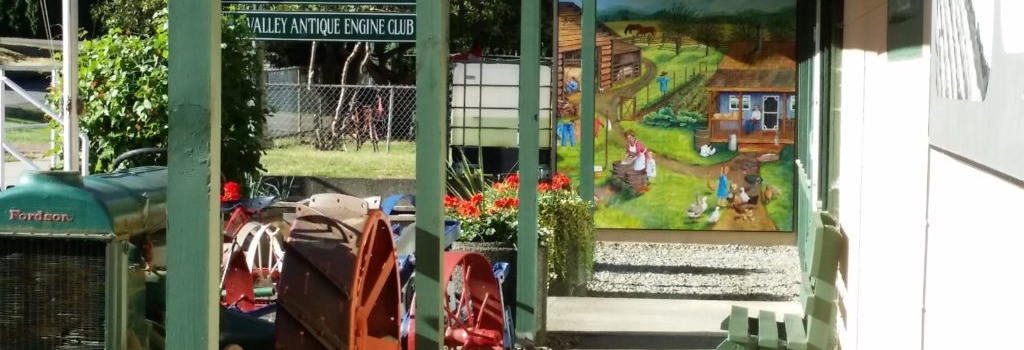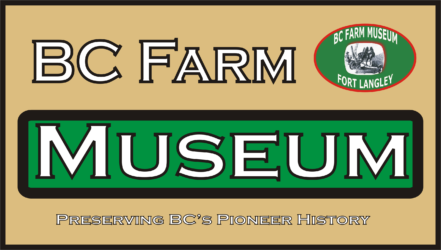Cyrus McCormick invented the grain reaper in 1831 when he was 22 years old and his invention dramatically changed food production around the world. It represented the first major advance in grain-harvesting technology since the scythe came along to supplement the sickle. Farmers have only a small window – 10 to 14 days or so – in which to harvest their grain for the year. With a sickle, a person could harvest about half an acre of grain in a day. In one of his first field exhibitions of the reaper, McCormick harvested six acres in an afternoon.
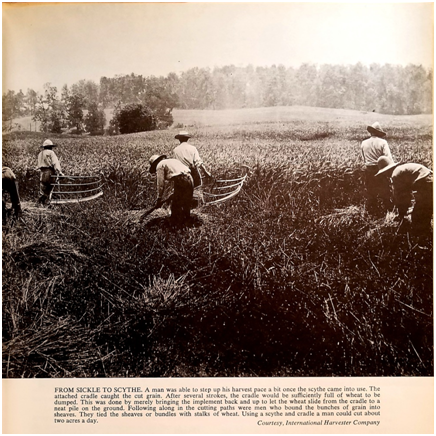
McCormick did much more than invent a farm tool as many say that the invention of the reaper in 1831 was the beginning of the agricultural industrial revolution.
Cyrus came in the fourth generation of American McCormicks. His father Robert invented things too, tinkering constantly in his blacksmith’s shop. In fact Robert conducted a fair bit of work on his own mechanical reaper before giving up and turning it over in 1831 to Cyrus and Jo Anderson, a slave who was brought up as his companion. Cyrus McCormick successfully demonstrated the new version later that year.
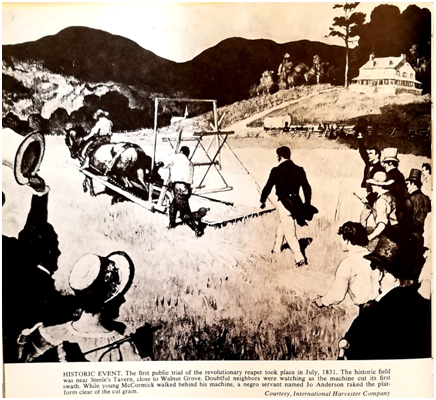
The first public trial, July 1831, just outside Walnut Grove with
Jo Anderson and young McCormick walking behind
Photos: – Cyrus McCormick’s blacksmith shop in 1831 where he invented the grain reaper.
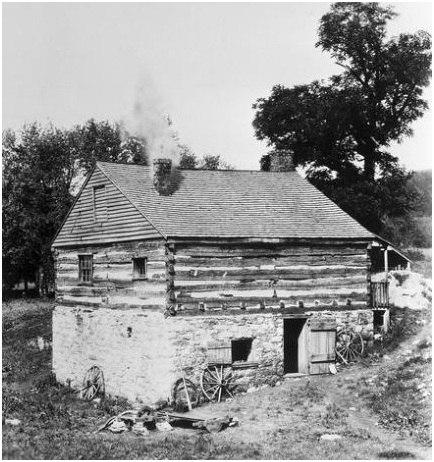
Photo: – the McCormick blacksmith shop today fully restored. Location is a museum run by the Virginia Agricultural Experimental Station of Virginia Tech.
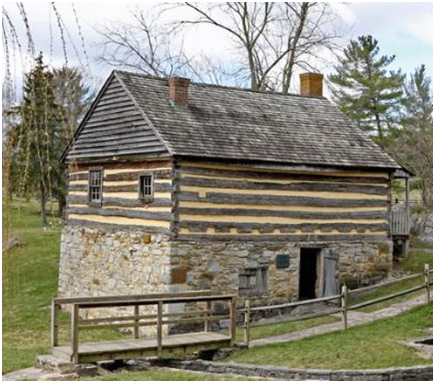
Note: We have a FROST & WOOD Sail Reaper (Accession #97224.7) at the BC Farm Museum that was used in Fort Langley in the 1800’s. Retrieved by the Tarves brothers half buried under eighteen inches of Fraser River silt during the flood of 1948 the restored by Les Goff, second curator of the BC Farm Museum. Donor was Mrs. Hilda Edge.
The sweeps replaced the need to rake the grain off by hand in the earlier versions. These sweeps when viewed from a distance looked to some like ‘sails on a boat’ and thus the name Sail Reaper.
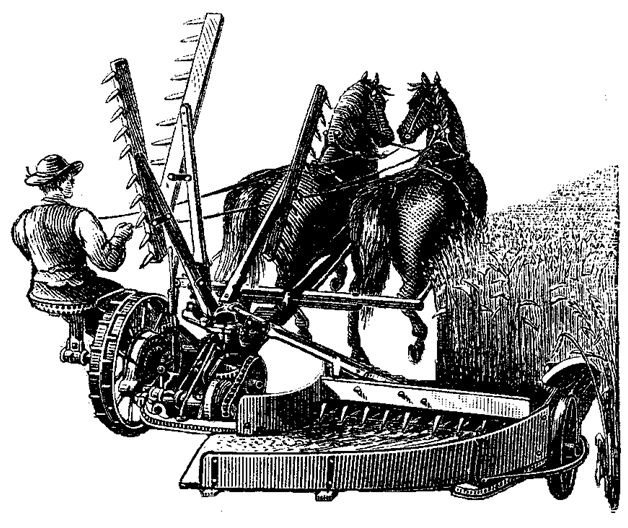
Note:- The Cyrus McCormick Farm and Workshop is on the family farm of inventor Cyrus Hall McCormick known as Walnut Grove. Cyrus Hall McCormick improved and patented the mechanical reaper, which eventually led to the creation of the combine harvester. The farm is near Steele’s Tavern and Raphine, close to the northern border of Rockbridge and Augusta counties in the U.S. state of Virginia, and is currently a museum run by the Virginia Agricultural Experimental Station of Virginia Tech. The museum with free admission and covers 5 acres (2.0 ha) of the initial 532-acre (215.3 ha) farm
